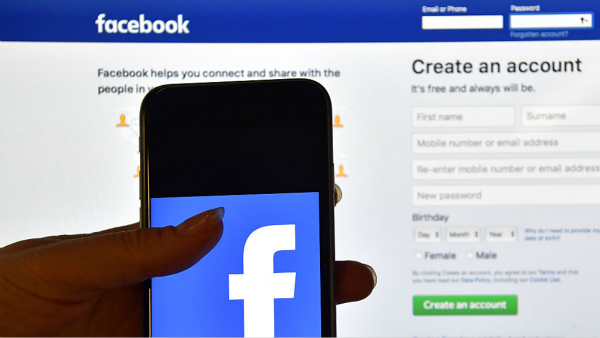(单词翻译:单击)
The US looks like a Wild West for personal data. Information gathered by companies — most prominently Google and Facebook — trades at lightning speed on advertising markets that most users do not even know exist. If search engines and social networks can turn customer data into cash, why should broadband sellers such as Verizon be excluded from the gold rush?
就个人数据而言,美国看起来像荒野西部(Wild West)。企业——主要是谷歌(Google)和Facebook——收集的信息以闪电般的速度在多数用户甚至不知道存在的广告市场上交易。如果搜索引擎和社交网络可以把用户数据转化为现金,Verizon等宽带提供商凭什么要被排除在这场淘金热之外?
That is the cynical, if understandable, reaction to a vote by Republican lawmakers to do away with data rules faced by cable and telecoms companies. A Federal Communications Commission regulation, adopted days before last November’s election, would force broadband providers to get permission from customers before selling on data about them. Congress has voted to reverse that requirement.
这是对美国共和党议员投票废除有线电视和电信公司面临的数据规则的愤世嫉俗(如果说可以理解的话)的反应。去年11月美国大选几天前,联邦通信委员会(FCC)出台一项规定,拟强迫宽带提供商在出售用户数据前必须得到用户许可。国会已投票撤销这一要求。
There are good arguments for placing limits on the owners of the “pipes” that carry the internet that do not apply to the services that travel over those pipes. Consumers already pay for internet access. Many might not be pleased to discover that the networks are making extra money by trading in their personal data. Many US broadband markets are also a duopoly. Customers unhappy with the terms of service have few options.
有很好的理由对承载互联网流量的“管道”的所有者进行限制,而对依托管道提供的服务不要求这些限制。消费者已经为互联网接入支付了费用。许多人可能不满网络提供商通过交易他们的个人数据来赚取外快。同时美国多地的宽带市场处于双强垄断状态。不满意此类服务条款的用户很少有其他选择。
Yet a two-tier privacy regime entrenches Google and Facebook in a market where they are already dominant. Advertisers want more choice, and supported the Republican Congress’ position. The big players of search and social networking are themselves becoming unavoidable utilities.
然而,这种二级隐私保护机制巩固了谷歌和Facebook在它们已经主宰的市场中的地位。广告商希望有更多选择,它们支持共和党主导的国会的立场。搜索和社交网络领域的巨头本身也已变成回避不了的公用事业。
One response would be for Congress to level the privacy standards up, not down. But with the new administration bent on cutting the power of agencies such as the FCC, that is too much to hope for. It is also not clear how much consumers benefit from the “opt-in” rules that the broadband companies have been facing. Brussels adopted a regime like this, forcing websites to warn visitors that they plant tracking “cookies” for advertising purposes, and to seek approval. For most users, clicking their approval became a reflex.
一个回应将是由美国国会提升(而非下调)隐私保护标准。但鉴于特朗普政府一心想削弱联邦通信委员会等机构的权力,这似乎要求太高了。同样还不清楚的是,消费者能在多大程度上获益于宽带公司迄今面临的“选择性加入”规则。布鲁塞尔实行一种类似的机制,强制网站提醒访问者注意,他们为了广告目的而植入了追踪“cookie”,为此征求用户同意。对大多数用户来说,点击同意已成为本能反应。
The debate should not be reduced to a simple choice, where companies are either required to seek customers’ approval before selling their personal data (an opt-in regime), or are free to use it unless customers say otherwise (opt out). To be effective, such a binary choice would require much better-informed consumers with more options. It is not clear to most people why — other than a vague sense of dread — they should worry about their data being shown to advertisers. By contrast, the benefits of ad-supported internet services are obvious.
这场辩论不应被简化为一个简单的选择——公司或是被要求在出售用户个人数据之前征求用户同意(选择性加入机制),或者随意使用这些数据,除非用户说不(选择性退出机制)。为了行之有效,这种二选一的选择将依靠消息更加灵通、拥有更多选择的消费者。除了模糊的恐惧感,多数人并不清楚自己为何要担心个人数据被提供给广告商。相比之下,由广告支撑的互联网服务的好处是显而易见的。

Internet users still do not know enough about the digital dossiers that have been built up about them. Internet companies have gone some way to letting their users see what assumptions about them have been sold to advertisers. But the data are tricky to find, and patchy. Sensible regulation would require that the disclosures are always one click away, and mandate periodic “push” notifications about the information being collected.
互联网用户仍不够了解企业对他们建立的数字档案。互联网公司已付出一定努力让用户看到,关于他们的哪些假设被卖给了广告商。但这些数据很难找到,且分布零散。合理的监管规则应该要求信息披露通过一次点击即可完成,并要求对收集的信息发布周期性“推送”通知。
Another idea would be to give customers the option to pay for Google or Facebook — in return for seeing no advertising and a guarantee that no information is collected. Average ad revenue per US user at Facebook, for example, is $6 a month (and a fraction of that in the rest of the world). If users could pay that sum in return for Facebook’s technology protecting, rather than selling, their personal information, only a few might do so. For that few, though, the option might be very valuable — and its very existence might make all users think more about the trade-offs they are making.
另一个构想是给用户向谷歌或Facebook付费的选择权——以换取看不到任何广告,也没有任何数据被收集的保证。例如,Facebook上每个美国用户每月平均带来的广告收入是6美元(其他国家更少)。如果用户可以支付这笔费用,以换取Facebook对他们的个人信息给予技术保护(而非出售),可能只有很少人会这样做。不过,对这部分人而言,这一选择可能非常有价值,而它的存在或许会让所有用户多想一想自己的取舍。


